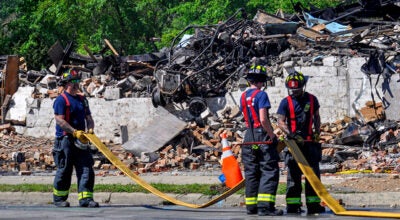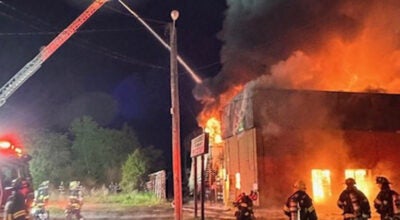Suffolk’s air quality grade: F
Published 10:37 pm Friday, April 27, 2012
Even though smog levels in Suffolk improved slightly from last year, the American Lung Association still gives Suffolk a failing grade in air quality in its 2012 State of the Air Report.
The association also suggests air quality in Hampton Roads will suffer when a new coal-fired power plant in Surry County begins operation, but officials with the power company say that’s not so.
Ozone, or smog, is the most widespread air pollutant and is created by the reaction of sunlight on emissions from vehicles and other sources, according to the American Lung Association. When inhaled, it irritates the lungs and causes health problems like wheezing, coughing and asthma attacks and can lead to premature death.
The report is based on information collected between 2008 and 2010 on ozone pollution in Suffolk. It did not monitor particle pollution for Suffolk.
“It’s hard to plan exactly where air pollution is coming from,” said Kimberly Williams, an advocacy and communications manager for the American Lung Association. “We see a lot of wind effects with pollution.”
Some wind-driven pollution will come from the coal-fired power plant proposed by the Old Dominion Electric Cooperative, the lung association says.
“If this coal-fired power plant is built, it would be adding to the problem,” Williams said. “It’s expected to affect negatively a very large area.”
A report released last year by the Chesapeake Bay Foundation asserts that the plant will pollute the region’s air with invisible soot-like particles, causing asthma attacks, heart attacks and other ailments.
“The illnesses and deaths would cost billions of dollars, imposing a heavy burden on the people of the Chesapeake Bay region,” the report states.
Officials with Old Dominion Electric Cooperative, however, strongly disagree.
“We don’t agree with it at all,” said David Hudgins, director of member and external relations for ODEC. “(The Department of Environmental Quality) cannot issue a permit that violates the national ambient air quality standards. The rule is there has to be no significant impact.”
The plant has yet to get off the ground, and legal challenges to an Environmental Protection Agency rule that effectively outlawed coal plants likely will take at least two years, Hudgins said.
In the meantime, though, Suffolk still is grappling with failing air.
More than a third of the city’s residents are under 18 or over 65, both groups that are more susceptible to the effects of unclean air. A quarter of residents have cardiovascular disease, which also makes a person more sensitive to pollution.
But there are things people can do to mitigate the impact of unclean air on their health.
People should routinely check the local air quality and stay inside if it is poor, Williams said. People also should limit their time near busy highways to reduce exposure to vehicle exhaust.
Residents and businesses can help by refraining from burning trash and wood outside; using public transportation, carpooling, walking or riding a bicycle whenever possible; and using as little electricity as possible, Williams said.
More information on the report can be found at www.stateoftheair.org.






